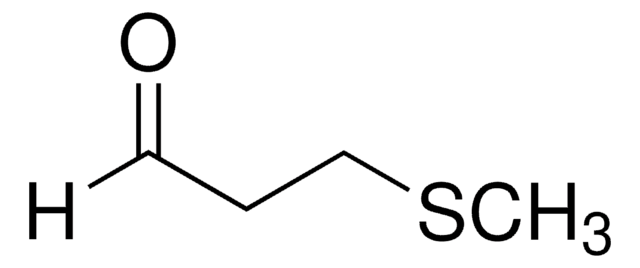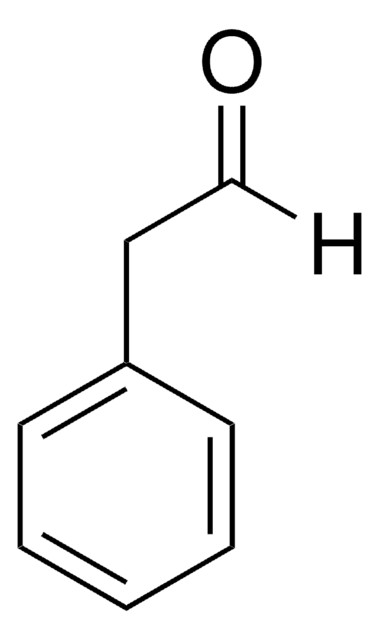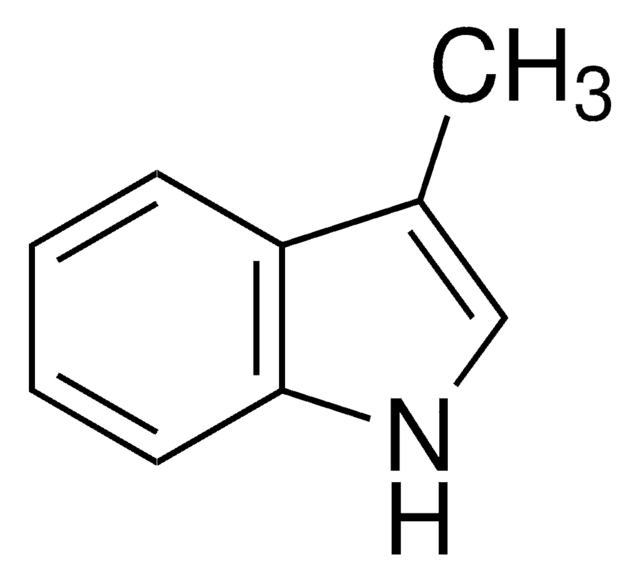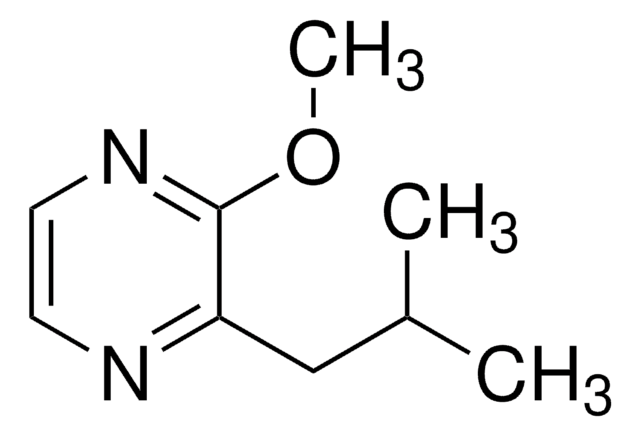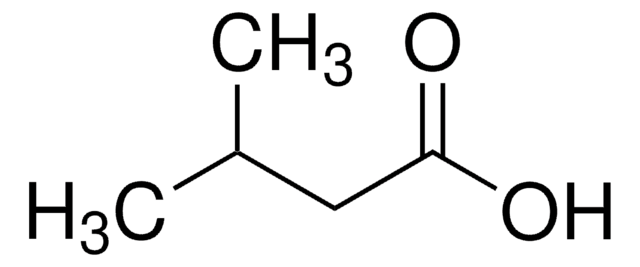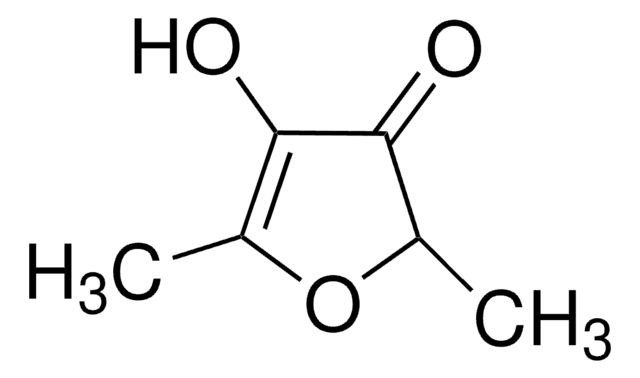W274711
Methional
natural, ≥98%, FG
Synonym(s):
3-(Methylthio)propionaldehyde, 3-(Methylthio)propanal, 3-(Methylmercapto)propionaldehyde, Methional, NSC 15874
About This Item
Kosher
natural
Recommended Products
grade
FG
Kosher
natural
Quality Level
reg. compliance
EU Regulation 1334/2008 & 178/2002
FDA 21 CFR 172.515
vapor density
>1 (vs air)
vapor pressure
760 mmHg ( 165 °C)
assay
≥98%
greener alternative product characteristics
Less Hazardous Chemical Syntheses
Use of Renewable Feedstocks
Learn more about the Principles of Green Chemistry.
sustainability
Greener Alternative Product
refractive index
n20/D 1.483 (lit.)
bp
165-166 °C (lit.)
density
1.043 g/mL at 25 °C (lit.)
application(s)
flavors and fragrances
documentation
see Safety & Documentation for available documents
food allergen
no known allergens
greener alternative category
organoleptic
creamy; earthy; vegetable; potato; tomato
storage temp.
2-8°C
SMILES string
CSCCC=O
InChI
1S/C4H8OS/c1-6-4-2-3-5/h3H,2,4H2,1H3
InChI key
CLUWOWRTHNNBBU-UHFFFAOYSA-N
Looking for similar products? Visit Product Comparison Guide
General description
Application
Biochem/physiol Actions
signalword
Danger
Hazard Classifications
Acute Tox. 3 Dermal - Acute Tox. 4 Inhalation - Acute Tox. 4 Oral - Aquatic Chronic 3 - Eye Dam. 1 - Skin Irrit. 2 - Skin Sens. 1
Storage Class
6.1C - Combustible acute toxic Cat.3 / toxic compounds or compounds which causing chronic effects
wgk_germany
WGK 1
flash_point_f
165.2 °F - closed cup
flash_point_c
74 °C - closed cup
Choose from one of the most recent versions:
Already Own This Product?
Find documentation for the products that you have recently purchased in the Document Library.
Customers Also Viewed
Our team of scientists has experience in all areas of research including Life Science, Material Science, Chemical Synthesis, Chromatography, Analytical and many others.
Contact Technical Service